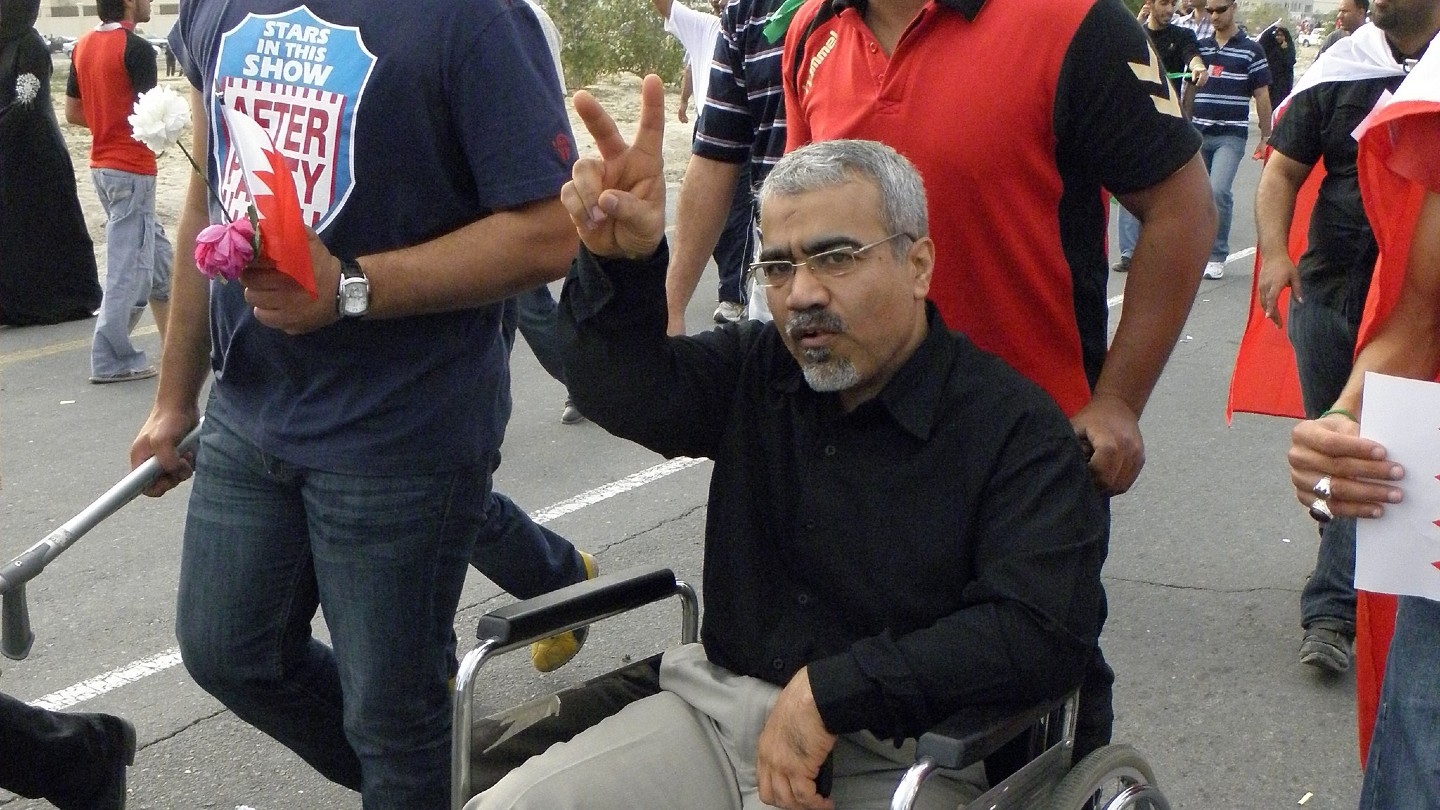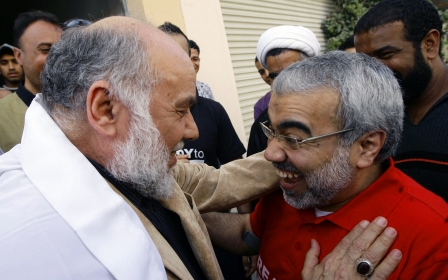Bahrain: Rights groups criticise treatment of jailed hunger-striking academic

Several human rights groups have criticised Bahrain over its treatment of a political prisoner who has refused to take solid foods for the past year in protest against his detention.
Abduljalil al-Singace, director and spokesperson of the Human Rights Bureau of the Haq Movement for Civil Liberties and Democracy, has been in jail since 2011, when he was sentenced to life in prison on terrorism allegations.
He began a hunger strike in July 2021 after the confiscation of research materials from his cell in Jaw Prison, in eastern Bahrain.
In a statement on Friday, Reporters Without Borders (RSF) called on Bahraini authorities to release the activist, who reportedly suffers from chronic medical conditions, including post-polio syndrome, and requires crutches or a wheelchair to move.
"We must not allow Abduljalil al-Singace to die and to be forgotten," said Sabrina Bennoui, the head of RSF's Middle East desk.
New MEE newsletter: Jerusalem Dispatch
Sign up to get the latest insights and analysis on Israel-Palestine, alongside Turkey Unpacked and other MEE newsletters
"This blogger has been left to rot in prison for more than 11 years and that is already way too long. What is the Bahraini monarchy waiting for in order to finally recognise the urgency of the situation? We urge the authorities to act responsibly by releasing him without further delay."
According to RSF, Singace has reportedly lost more than 25kg since starting his hunger strike. A member of his family told the NGO: "He is weak. He trembles sometimes. The tips of his fingers are cold. And he is pale." He has survived by "drinking tea with milk and sugar and taking vitamins," his family member added.
Since the 2011 Arab Spring uprisings, which saw thousands of pro-democracy demonstrators take to the streets of Bahrain, the Gulf nation's Sunni monarchy has launched a comprehensive crackdown on opposition groups and human rights activists.
Singace was among 13 anti-government protesters who were arrested and convicted on charges that included "setting up terror groups to topple the regime".
Since the uprising, Bahrain has outlawed opposition parties and arrested dozens of activists, sparking international criticism.
"Dr al-Singace's determination and courage to fight for justice has been an inspiration to us to continue striving for his and all other arbitrarily detained political prisoners," said Sayed Ahmed Alwadaei, director at the Bahrain Institute for Rights and Democracy.
"Although we wish he never had to start this strike in the first place and put his life at risk, we stand behind him and will continue to echo his demands that his work must be given to his family."
Earlier this week, Amnesty International called on Bahrain's authorities to "immediately and unconditionally release" Singace and "urgently ensure" he is given all necessary medication "without delay".
Middle East Eye delivers independent and unrivalled coverage and analysis of the Middle East, North Africa and beyond. To learn more about republishing this content and the associated fees, please fill out this form. More about MEE can be found here.




